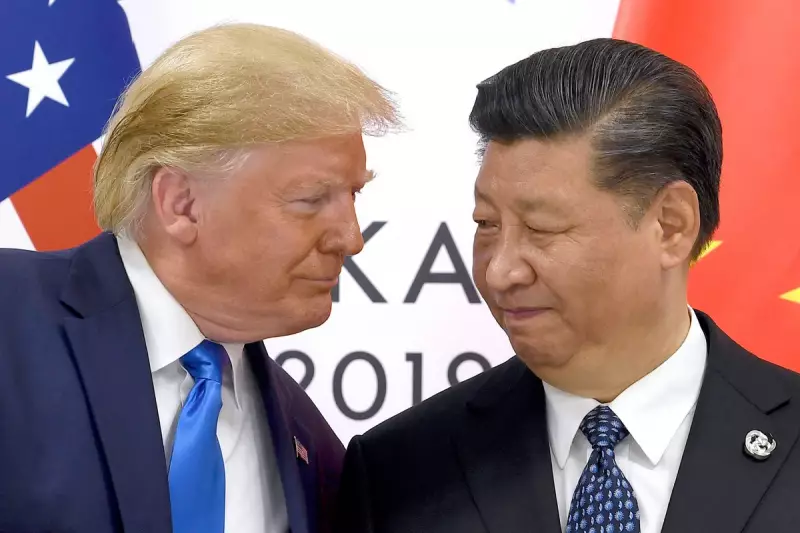
In a stunning revelation that could reshape the global technological landscape, former President Donald Trump allegedly devised a secret strategy to achieve American self-sufficiency in advanced semiconductor production, specifically targeting China's artificial intelligence ambitions.
The Semiconductor Sovereignty Plan
According to intelligence sources familiar with the matter, Trump's administration explored radical measures to ensure the United States could domestically produce the most sophisticated computer chips required for artificial intelligence systems. This move would fundamentally alter the balance of technological power between Washington and Beijing.
The strategy reportedly involved creating a complete domestic supply chain for cutting-edge semiconductors, effectively making America independent from foreign chip manufacturing—particularly from Asian production hubs that currently dominate the global market.
Nvidia in the Crosshairs
The investigation reveals that Trump's team had identified Nvidia, the California-based tech giant, as a key player in this geopolitical chess game. Nvidia's advanced AI chips have become the gold standard for artificial intelligence development worldwide, making them a critical asset in the technological arms race between superpowers.
Insiders suggest the former president's administration was particularly concerned about Chinese companies accessing Nvidia's most powerful processors through indirect channels, despite existing export controls.
Economic and Security Implications
The potential consequences of such a policy are monumental:
- Complete restructuring of global semiconductor supply chains
- Accelerated decoupling of American and Chinese tech sectors
- Potential disruption to AI research and development worldwide
- Significant impacts on companies like Nvidia that rely on global markets
Technology analysts warn that achieving true semiconductor independence would require massive investment in domestic manufacturing capabilities and could take years, if not decades, to accomplish.
Broader Technological Cold War
This alleged plan represents the latest escalation in the ongoing technological cold war between the United States and China. Both nations have identified artificial intelligence as a critical domain for future economic and military superiority.
The Biden administration has maintained and expanded Trump-era restrictions on semiconductor exports to China, indicating bipartisan concern about Beijing's technological advancement. However, the concept of complete American self-sufficiency marks a more radical approach to the challenge.
Industry Reaction and Future Prospects
Technology executives and industry experts have expressed mixed reactions to the potential policy shift. While some welcome reduced dependence on overseas manufacturing, others caution about the enormous costs and technical challenges involved in recreating complex global supply chains domestically.
As the 2024 presidential election approaches, the future of US semiconductor policy remains uncertain, with both major candidates likely to maintain pressure on China's technological ambitions, though potentially through different strategies.
The revelation of Trump's alleged chip independence plan underscores how semiconductor technology has moved from being merely a commercial concern to a central element of national security and geopolitical strategy.





